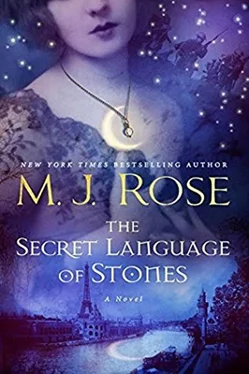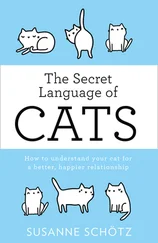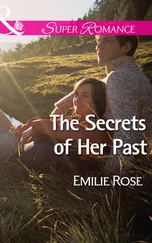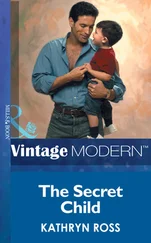Instead, he’d died with only my mockery ringing in his head.
My father was right: I couldn’t have known the future. But I still couldn’t excuse myself for my thoughtless past.
The USMS New York ’s sonorous horn blasted three times, and all around us people said their last good-byes. Reluctantly, my father let go of me.
“I’d like you to leave once I’m on board,” I told my parents. “Otherwise, I’ll stand there watching you and I’ll start to cry.”
“Agreed,” my father said. “It would be too hard for us as well.”
Once I’d walked up the gangplank and joined the other passengers at the railing, I searched the crowd, found my parents, and waved.
My mother fluttered her handkerchief. My father blew me a kiss. Then, as promised, they turned and began to walk away. The moment their backs were to me, I ran from the railing, found a porter, pressed some francs into his hand, and asked him to take my luggage from the hold and see me to a taxi.
I would not be sailing to America. I was traveling on a train to Paris. Once ensconced in the cab, I told the driver to transport me to the station. After maneuvering out of the parking space, he joined the crush of cars leaving the port. Moving at a snail’s pace, we drove right past my parents, who were strolling back to the hotel where we’d stayed the night before.
Sliding down in my seat, I hoped they wouldn’t see me, but I’d underestimated my mother’s keen eye.
“Opaline? Opaline?”
Hearing her shout, I rose and peeked out the window. For a moment, they just stood frozen, shocked expressions on their faces. Then my father broke into a run.
“Hurry!” I called out to the driver. “Please.”
At first I thought my father might catch up to the car, but the traffic cleared and my driver accelerated. As we sped away, I saw my father come to a stop and just stand in the road, cars zigzagging all around him as he tried to catch his breath and make sense of what he’d just seen.
Just as we turned the corner, my mother reached his side. He took her arm. I saw an expression of resignation settle on his face. Anger animated hers. I think she knew exactly where I was going. Not because she was clairvoyant, which she was, of course, but because we were alike in so many ways, and if history was about to repeat itself, she wanted me to learn about my powers from her.
I’d been ambivalent about exploring my ability to receive messages that were inaudible and invisible to others-messages that came to me through stones-but I knew if the day came that I was ready, I’d need someone other than her to guide me.
Years ago, when she was closer to my age, my mother’s journey to Paris had begun with her meeting La Lune, a spirit who’d kept herself alive for almost three centuries while waiting for a descendant strong enough to host her. My mother embraced La Lune’s spirit and allowed the witch to take over. But because Sandrine was my mother, I hadn’t been given an option. I’d been born with the witch’s powers running through my veins.
Once my mother made her choice to let La Lune in, she never questioned how she used her abilities. She justified her actions as long as they were for good. Or what she believed was good. But I’d seen her make decisions I thought were morally wrong. So when I was ready to learn about my own talents, I knew it had to be without my mother’s influence. My journey needed to be my own.
“I’m sorry, but I plan to stay in Paris and work for the war effort,” I told my mother when I telephoned home the following day to tell my parents I’d arrived at my great-grandmother’s house.
When my mother first moved to Paris, my great-grandmother tried but failed to hide the La Lune heritage from her. Once my mother discovered it, Grand-mère tried to convince my mother that learning the dark arts would be her undoing. My mother rejected her advice. When Grand-mère’s horror at Sandrine’s possession by La Lune was mistaken for madness, she was put in a sanatorium. Eventually my mother used magick to help restore Grand-mère to health. Part of her healing spell slowed down my great-grandmother’s aging process so in 1918, more than two decades later, she looked and acted like a woman in her sixties, not one approaching ninety.
Grand-mère was one of Paris’s great courtesans. A leftover from the Belle Époque, she remained ensconced in her splendid mansion, still entertaining, still running her salon. Only now she employed women younger than herself to provide the services she once had performed.
“But I don’t want you in Paris,” my mother argued. “Of all places, Opaline, Paris is the most dangerous for you to be on your own and…”
The rest of her sentence was swallowed by a burst of crackling. In 1905, we’d been one of the first families to have a telephone. A decade later almost all businesses and half the households in France had one, but transmission could still be spotty.
“What did you say?” I asked.
“It’s too dangerous for you in Paris.”
I didn’t ask what she meant, assuming she referred to how often the Germans were bombarding Paris. But now I know she wasn’t thinking of the war at all but rather of my untrained talents and the temptations and dangers awaiting me in the city where she’d faced her own demons.
I didn’t listen to her entreaties. No, out of a combination of guilt over Timur’s death and patriotism, my mind was set. I was committed to living in Paris and working for the war effort. Only cowards went to America.
I’d known I couldn’t drive ambulances like other girls; I was disastrous behind the wheel. And from having three younger siblings, I knew nursing wasn’t a possibility-I couldn’t abide the sight of blood whenever Delphine, Sebastian, or Jadine got a cut.
Two months after Timur died, his mother, Anna Orloff, who had been like an aunt to me since I’d turned thirteen, wrote to say that, like so many French businesses, her husband’s jewelry shop had lost most of its jewelers to the army. With her stepson, Grigori, and her youngest son, Leo, fighting for France, she and Monsieur needed help in the shop.
Later, Anna told me she’d sensed I needed to be with her in Paris. She had always known things about me no one else had. Like my mother, Anna was involved in the occult, one reason she had been attracted to my mother’s artwork in the first place. For that alone, I should have eschewed her interest in me. After all, my mother’s use of magick to cure or cause ills, attract or repel people, as well as read minds and sometimes change them, still disturbed me. Too often I’d seen her blur the line between dark and light, pure and corrupt, with ease and without regret. That her choices disturbed me angered her.
Between her paintings, which took her away from my brother and sisters and me, and her involvement with the dark arts, I’d developed two minds about living in the occult world my mother inhabited with such ease.
Yet I was drawn to Anna for her warmth and sensitive nature-so different from my mother’s elaborate and eccentric one. Because I’d seen Anna be so patient with her sons’ and my siblings’ fears, I thought she’d be just as patient with mine. I imagined she could be the lamp to shine a light on the darkness I’d inherited and teach me control so I wouldn’t accidentally traverse the lines my mother crossed so boldly.
Undaunted, I’d fled from the dock in Cherbourg to Paris, and for more than three years I’d been ensconced in Orloff’s gem of a store, learning from a master jeweler.
To teach me his craft, Monsieur had me work on a variety of pieces, but my main job involved soldering thin bars of gold or silver to create cages that would guard the glass on soldiers’ watch faces.
Читать дальше












